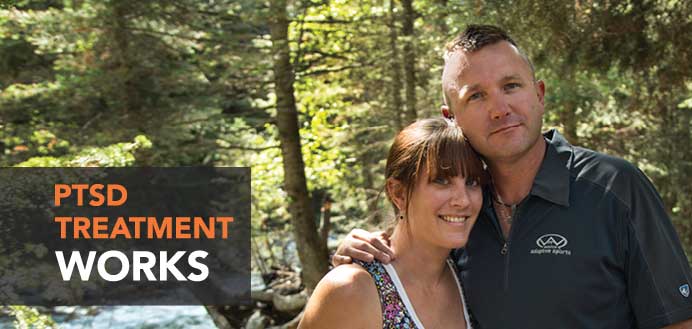Learn about PTSD
Post-traumatic stress disorder, also known as PTSD, is a mental health problem that some people develop after experiencing a life-threatening, terrifying, or dangerous event. PTSD is an anxiety disorder. Traumatic events that may trigger PTSD symptoms include violent personal assaults, child sexual or physical abuse, natural disasters, gun violence, terror attacks, military combat, accidents, and other serious events.
It is normal to feel afraid during and after a traumatic event, this is known as the “fight-or-flight” response, and is your body’s way of protecting itself from possible harm.
However, it is important to note that any experience that is deeply distressing or disturbing can be considered traumatic, even if it may not seem “serious” to others.
Not everyone who experiences trauma develops PTSD. For some people, the stress and anxiety lingers long after the trauma is over.
It is important for anyone with PTSD to work with an experienced team of psychiatrists and mental health professionals who have experience treating PTSD. PTSD, like other anxiety disorders, are most often treated with psychotherapy, medications, or both.
Symptoms of PTSD
Symptoms of PTSD typically begin within 3 months of a traumatic event, but sometimes can begin years later. Symptoms must last more than a month and interfere with relationships or work to be considered PTSD. There are four types of PTSD symptoms, but they are not the same for everyone.
People with PTSD may have co-occurring conditions such as depression, panic disorder, other anxiety disorders.
To be diagnosed with PTSD, an adult must have all of the following for at least one month:
- At least one re-experiencing symptom
- At least one avoidance symptom
- At least two arousal and reactivity symptoms
- At least two cognition and mood symptoms
Four types of ptsd symptoms
Re-experiencing Symptoms
- Flashbacks – reliving the traumatic event, including physical symptoms like racing heart or sweating
- Recurring memories or nightmares related to the event
- Frightening thoughts
Avoidance Symptoms
- Staying away from places, people, events or objects that remind you of the experience. For example, if you were in a car accident, you might avoid driving.
- Avoiding thoughts or feelings related to the traumatic event
Arousal and Reactivity Symptoms
- Being easily startled
- Feeling tense, on guard, or on edge
- Difficulty concentrating
- Difficult falling asleep or staying asleep
- Angry outbursts and irritability
Cognition and Mood Symptoms
- Trouble remembering key features of the traumatic event
- Negative thoughts about oneself or the world
- Distorted thoughts about the event, feelings of blame, anger, guilt, or shame
- No longer interested in things you used to enjoy
How is PTSD Diagnosed and Treated?
It is important for anyone with PTSD symptoms to work with a qualified psychiatrist and mental health team with experience treating PTSD. A Novum Psychiatry psychiatrist will ask you questions about your PTSD symptoms and medical history.
Treatment typically includes medication, psychotherapy (“talk therapy”) such as Cognitive Behavioral Therapy, or a combination of both. It’s important to know that, although it may take some time, you can get better with treatment.
Request an evaluation today with the experienced, professional Novum Psychiatry team today.

Request Evaluation Today
We know that taking the first step can be difficult. Whether this is your first time seeking psychiatric care or if you are seeking a new provider, Novum Psychiatry can help. Our team of psychiatrists and therapists are committed to understanding your unique experience and working closely with you on a treatment plan to maximize the quality of your life.









